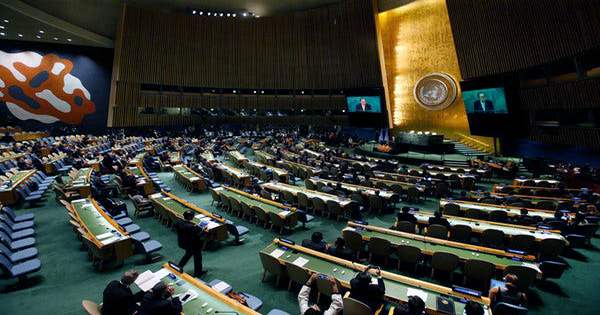Turkey, the last of the G20 nations to do so, has officially ratified the Paris Climate Agreement, five years after signing it. The unanimous acceptance occurred after the government highlighted many concerns regarding its position in relation to the pact. Murat Kurum, Turkey’s environment, and urbanization minister announced on Wednesday that “‘The Proposal for Approval of the Paris Climate Agreement was unanimously endorsed in the General Assembly of the Turkish Grand National Assembly,” just weeks before the COP26 Climate Change Conference.
“We hope that this move, which strengthens our battle against climate change and serves as the foundation for our Net Zero objective for 2053, will be helpful.” Because Turkey is a member of the G20, it has been assigned to the Annex I group of developed nations under the Paris Climate Agreement. It refused to ratify the deal because it would obligate the government to do more on climate change than underdeveloped countries. President Tayyip Erdogan declared last month at the UN General Assembly that Turkey would ratify the accord, but that the countries that have polluted the most historically bear the greatest responsibility for resolving the situation.
Around 353 members of the Turkish parliament ratified the agreement on Turkey’s treatment as a developing country. Those countries have access to investment, insurance, and technology transfer as a result of the Paris Agreement. The country declared in a statement passed by parliament that it will execute the deal if it does not have a negative impact on its social and economic development.
The country has also submitted a formal request to the United Nations Framework Convention on Climate Change to be removed from the Annex I group (UNFCCC). This will be debate during the COP26 meeting in Glasgow, which will take place from October 31 to November 12. When it comes to the global response to the climate catastrophe, a lot is riding on this summit.
Members of Erdogan’s Justice and Development Party (AKP) have questioned if Erdogan’s government will genuinely implement the ratification. Dr. Jale Nur Süllü, a member of the main opposition Republican People’s Party (CHP), said in parliament that it was unclear what the outcome of ratifying the deal, as a developing country would be if the country’s change of status not authorized at the climate conference. A member of Turkeys Workers’ Party was much harsher. “Will you, for example, prohibit metals mining in the Black Sea (region)? Will you abandon ludicrous schemes such as Kanal Istanbul? I am sure you will not, “According to Reuters, Sera Kadigil Sutlu remarked.
Turkey, like many other parts of the world, has been devastated by extreme weather events such as fires and floods in recent months, killing tens of thousands of people and destroying major swaths of the country. Six years after the Paris Agreement was signed, it appears that the government is making progress in addressing the climate catastrophe. On Twitter Kurum addressed COP26 President Alok Sharma saying: “In accordance with the Paris Agreement, we will strengthen our cooperation and take more efforts to protect our world. There’s a lot to be done, and we’re ready to tackle it at #COP26.”
Despite agreements from heads of state, none of the world’s top emitting nations has yet to reach the Paris Agreement’s goals. Eritrea, Iran, Iraq, Libya, and Yemen are the five signatories that have yet to ratify the pact.
















